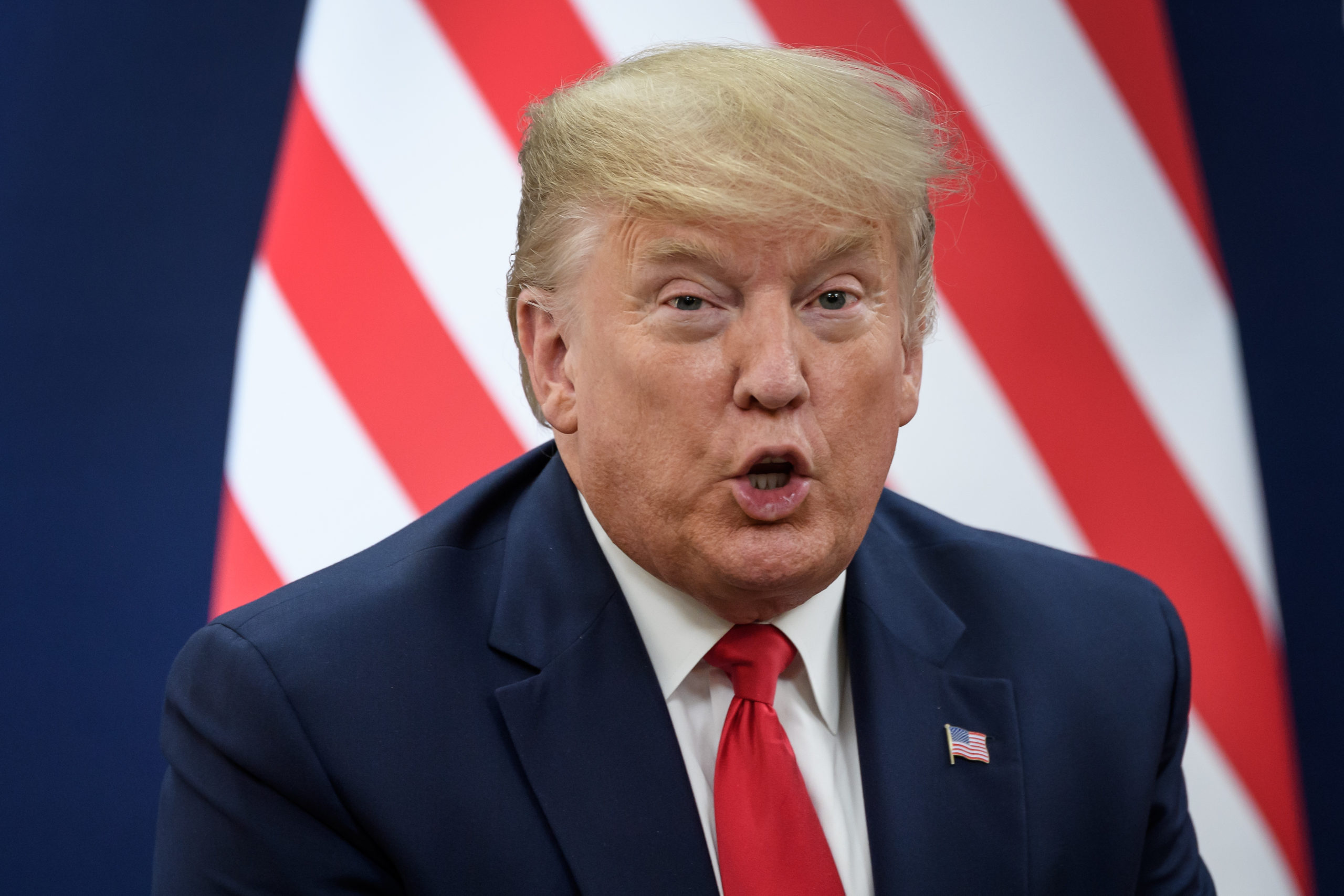President Donald Trump‘s administration is expected to add seven more nations, most of them African, to the U.S. travel ban list, according to a new Wall Street Journal report.
Officials familiar with the matter said immigrants hailing from the suggested countries — Belarus, Eritrea, Kyrgyzstan, Myanmar, Nigeria, Sudan and Tanzania — could face limitations on certain types of visas.

On his recent visit to the World Economic Forum in Davos, Switzerland, the president hinted at an expansion of the controversial ban but stopped just short of naming the new nations that could face restrictions.
“We’re adding a couple of countries to it,” he said. “You see what’s going on in the world. Our country has to be safe. So we have a very strong travel ban, and we’ll be adding a few countries to it.”
The new ban could go into effect Monday, on the third anniversary of Trump signing the initial ban that barred travelers from several Muslim-majority countries from entering the U.S. The decision sparked widespread panic, however, leading federal officials to assure travelers that those who had already been issued visas would not be affected by the measure.
“If you have a current valid visa to travel, we welcome you,” ex-Homeland Security Secretary John F. Kelly said at the time, adding that “unregulated, unvetted travel isn’t a universal privilege, especially when national security is at stake.”
The ban was blocked twice in federal court, but the Supreme Court upheld a third iteration in a 5-4 ruling in 2018, The Hill reported. Trump’s critics are now questioning the timing and rationale for the expansion, with fears that it could prompt a repeat of nationwide outrage and protests.
John Campbell, a former foreign service officer and ambassador to Nigeria between 2004 to 2007, said he was “baffled” by the handful of nations being considered.
“The collection of states don’t seem to have much in common,” Campbell told the outlet, noting the one thing that may link them “all are issues of airport security.”
The potential inclusion of Nigeria, Eritrea, Sudan and other African nations is also troubling to foreign policy experts, who fear the ban could hurt U.S.-Africa relations. Recent reports have shown that African immigration is on the rise, surging almost 50 percent between 2010 and 2018, data from the U.S. Census Bureau shows.
Nigerians remain the largest group of African immigrants in the States, while Cameroon natives are the fastest-growing population group.
“Were a meaningful travel restriction be put in place, the impact on Nigerian opinion of the United States would be very bad,” Campbell said. “The people who actually run Nigeria, the movers and shakers, all value enormously the ability to travel. They want to go to Disney World, they want to go shopping on Rodeo Drive. Many of them have property here. The Nigerian establishment would really resist.”
The existing travel ban requires that countries comply with certain security requirements, including established counterterrorism policies, in order to participate in American immigration programs.
The U.S. has toughened up on Nigeria — which boasts Africa’s largest economy — in recent years, however, as it accounted for the third-highest number of U.S. visa overstays in 2018, according to Quartz.
Specifics on the new travel ban remain unclear, and officials said no final decisions have been made. Official details are set to be announced as early as Monday.


